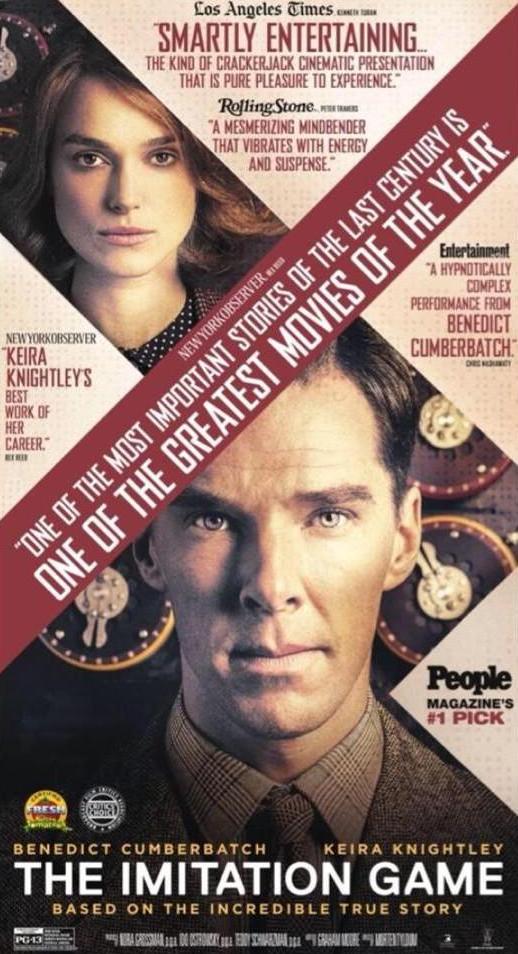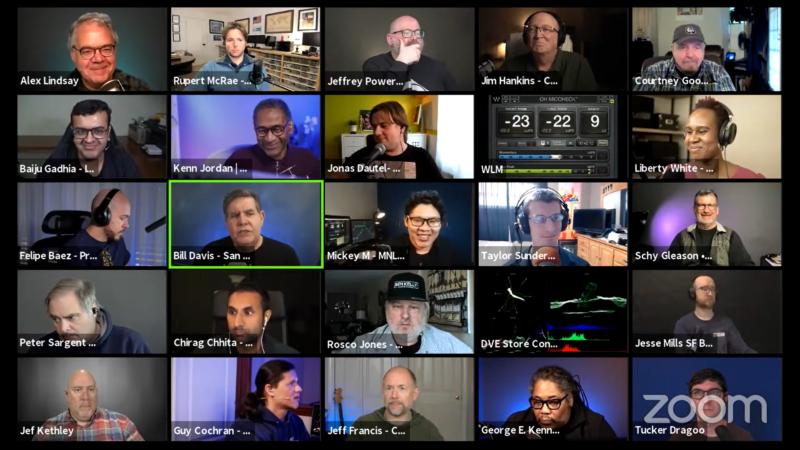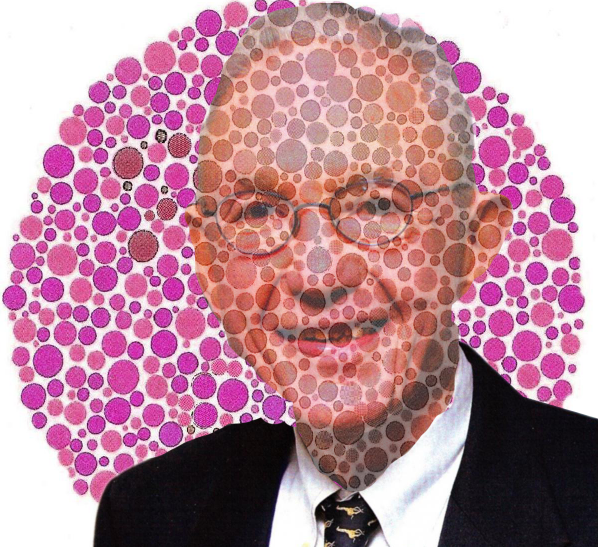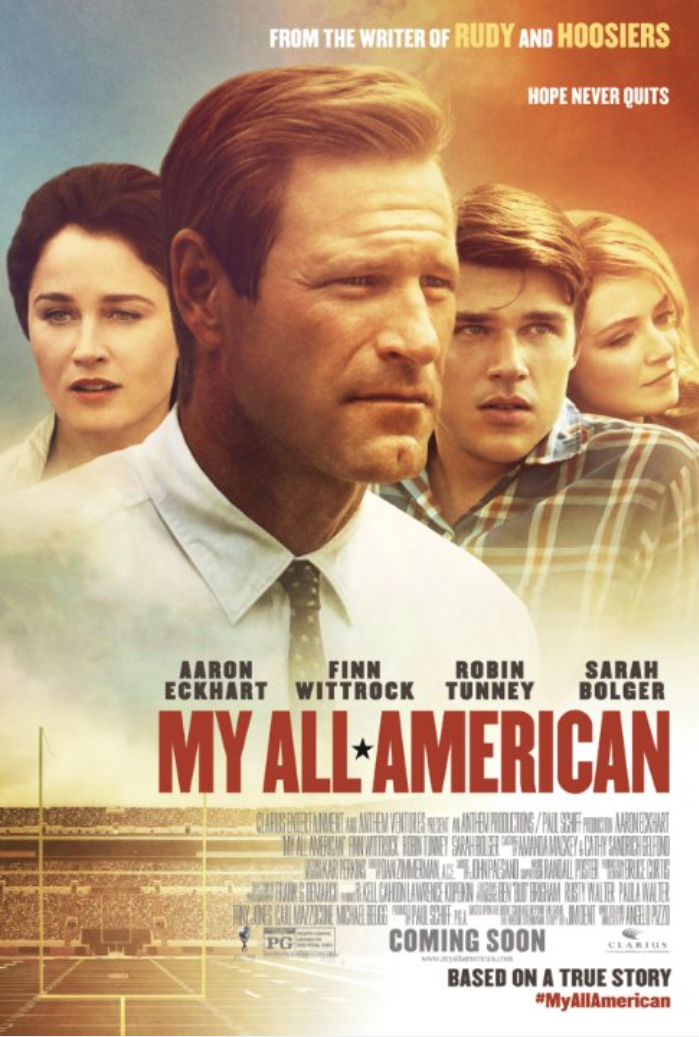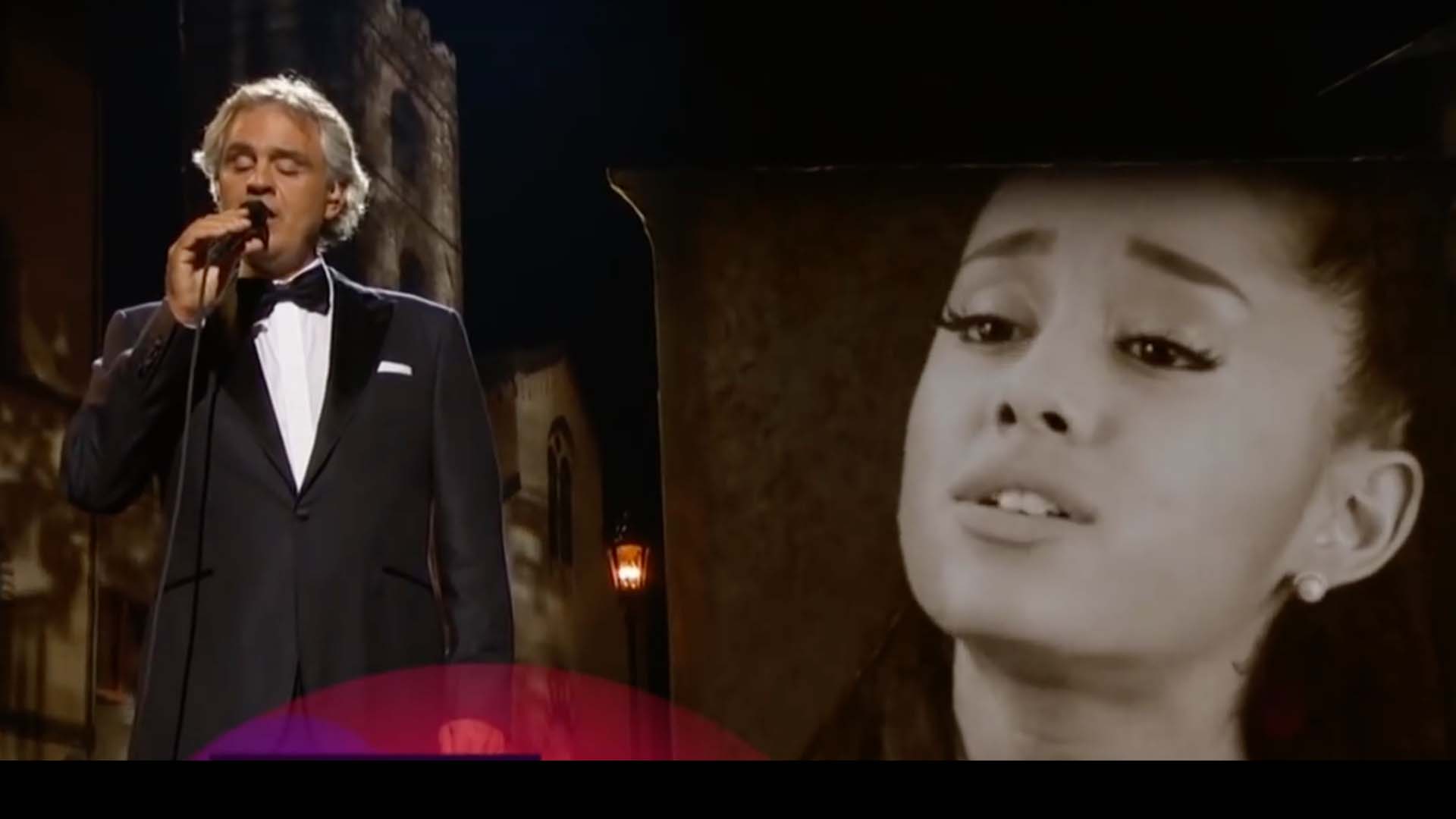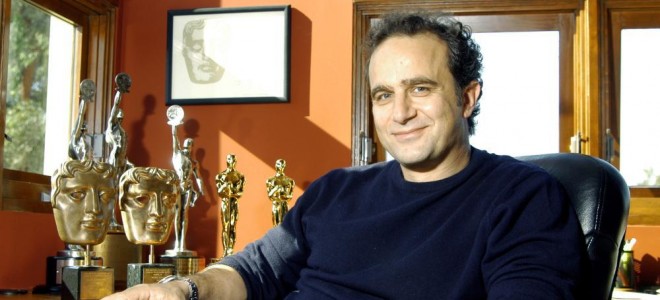I had a chance to talk with William “Billy” Goldenberg who won the Academy Award last year for editing Argo. He also cut Zero Dark Thirty and Transformers to name a few. We discussed his techniques for cutting real world event films, apprenticing with Steven Spielberg’s editor Michael Kahn and cutting his new film The Imitation Game that pays tribute to computer scientist, mathematician and World War II code breaker Alan Turing.
Billy: Everybody who worked on The Imitation Game had a similar goal, which was to get Alan Turing’s story out there and to try to get the public to understand what an amazing contribution he’s made to the world. His achievements were not only helping to win the war but by being the father of computer science and so many other things, it’s hard to list. But we were all very passionate about telling his story.
Mitch: The opening scene from The Imitation Game when Alan first meets Commander Dennison must have been a 6 or 7 page talking scene around the table. Is there some sort of methodology behind that type of cutting?
Billy: No I mean we’re introducing Alan as a character in that scene and trying to let the audience understand what he’s about and there’s a fair amount of humor in the scene so we’re trying to accentuate that and make it funny without making it funny outside of the movie, you know. Funny in an organic way to the film. Setting up both characters, setting up the dilemma of the movie, trying to serve all those functions and do it in a way that is good storytelling and entertaining.
Mitch: It’s hard to cut a long scene with just a couple of guys standing around and make it interesting.
Billy: Yea I mean, the writing is really good and the actors are obviously first rate and Ben is incredibly engaging and easy to watch so they do a lot of the work for you. When you sit in the screenings people seem to really enjoy it so again, it’s feeling the ebbs and flows of the drama, the dramatics, and trying to accentuate things and give it a certain pace in a way that makes it, that doesn’t make it feel flat it makes it have a lot of ups and downs and keep it engaging to the audience. I read that script and I didn’t feel intimidated by a long scene on paper. I didn’t feel like any one scene was over boring, I found it a real page turner so there was never a time where I was concerned about any of that. I was just trying to take the material that was already good and make it better.
See The Imitation Game trailer here:
https://www.youtube.com/watch?v=S5CjKEFb-sM
Mitch: It seems that some of your biggest movies you cut are about real world activities and events. The Imitation Game, Zero Dark Thirty, Argo…
Billy: We seem to be doing a run of them. I worked on Broken this year as well and so I seem to be drawn to them and sometimes it’s just the way things lay out. Sometimes you get into a run of things for no particular reason but I am drawn to true stories like that. True stories that weren’t big events but that are small bits of those events that no one’s heard of.
Mitch: You worked with a lot of archival footage in Argo.
Billy: Yea most of the times in the movies that I’ve worked on the archival footage is scripted and then you add and subtract to accentuate things and in Argo there were a lot of things that were very specific about the archival footage, that were mentioning a specific day, network and a person and then some of it was more vague and some of it wasn’t in there at all that we added in post. So it’s an ongoing sort of process. Also in Zero Dark Thirty we used it to sort of emphasize that these are real events you’re seeing, whether it was an explosion of the Marriott Hotel in Pakistan, where Mia, the woman that Jessica Chastain is playing, was actually at the hotel we have some archival footage of the actual explosion and the aftermath, just letting the audience know that these terrorist attacks were real, that this wasn’t a movie, this was real. I think in all these movies it functions to let the audience know that these are real events you’re seeing, this isn’t made up.
Avid Editing Workflows
Mitch: Tell us what kind of edit system you use and if could you imagine going back to cutting on film?
Billy: We cut the Imitation Game on the Avid, I think it was version 5, and I think we’re on version 7 now. Well I started as a film assistant and the first few projects I cut as an editor were on film so believe me I remember and my life is a lot easier and I guess more rewarding because of being able to work on a computer. It gives you so much more freedom. Freedom to make mistakes and freedom to try things that you might not normally try with film. So I am very thankful for all Alan Turig has done for me.
Mitch: How is your room set up?
Billy: I have two computer screens. I have just a Telepro monitor television and I have a 60” consumer flat screen. Generally the way I work is while I’m cutting I look at the smaller Pro monitor and then when I get through a scene and I want to see it in a slightly different view, I sit back and look at the big monitor so when I view daily’s I look at the big monitor. It just keeps it fresh, just looking at the bigger screen often makes it feel a little bit fresher and obviously it’s good for presentation. But I don’t have like a projection system really. I don’t have a 5.1 system. I cut in left/center/right, there’s a center channel I can manipulate against a left and right speaker. I have a subwoofer but I don’t have the 5.1 system, it’s a lot to carry while you’re cutting a film. So in terms of what I’ve seen, it’s fairly basic.
Mitch: Do you have any specific work flow you use to keep track of all your footage?
Billy: It’s just pulling selects and things and finding things I like or feel is relevant to the film and what we’re trying to say. I don’t really have a specific method for that it’s more like just finding stuff I like and putting pieces I like into a bin and having, I may have 4, 5 or 6 different ideas for one area that we’re trying to use archival footage and trying to figure out what the best is. That’s just more of an ongoing process. It’s an ever evolving thing because there’s an unending amount of archival footage and the more current the movie is the more footage there is. It’s a fairly painstaking process and luckily I have assistants who kind of thin it out for me and whittle things down a bit before I have to get looking. On Argo I am sure I looked at hundreds and hundreds of hours of archival footage to narrow it down to what we have in the film.
Mitch: Can you share any Avid tricks that helps you move fast and keep directors comfortable?
Billy: Well I kind of set it up the way we set it up on film and like what would be cam rolls, digital cam rolls. How that manifests itself in the Avid is that my assistant sets up the bin so that in line script order so that we start with the widest shots and then work down to the closest shots. We organize that in a way that it is set up in the line script, so the beginning of the scene and the end. Then I organize that, when I start going through and watching the daily’s I organize that in an even way more detailed system that I’ve developed over the years of breaking things up. Sometimes the scenes can be really long and you have a lot of takes within a take, especially digitally now you can shoot 4 or 5 performances in one take, so I kind of break the scenes up either line by line or section by section, and then group them in smaller groups, I mean I edit it in smaller sections so that I can manage it all. So I may have every line in the scene broken down line by line from wider shot to closer shot, so I can access every performance, every line all lined up within a row as opposed to trying to search for them all over the place and search for “where’s the third take of that” because everything is so loose now with digital. So I organize it in a way in which I can access things immediately and it makes the cutting go faster once I’ve done all that and it also makes the recutting a lot faster. The director can have instant access, “let me see all readings of that line” and I have them all lined up in a row. As opposed to “let me search for that and I’ll be with you in a minute”. So the organization part of it makes the postproduction go way smoother for me.
Mitch: Do you build your shows up or do you cut them down?
Billy: I tend to cut more stuff in than less so the director gets to see everything that they’ve shot. If I feel like it’s totally unnecessary I won’t put it in but then it’s much easier to uncut it, to go and pull stuff out and subtract, than it is to go back and go well let’s try cutting this and using these shots. So, I want to tell the story and present them something that really works. Sometimes I might put shots in that I think okay well I don’t know if this all will eventually be in the movie but they shot it and I’m sure they want to see it so let’s put it in and we can then decide if we want to keep it or lose it but at least they get to see what they’ve done.
Mitch: Do you find that you cut a lot on location or mostly not?
Billy: Mostly not, I mean, I’m in Pittsburgh now for this film and the last time I was on site before was eight years ago but it’s just specific to me, I know there are a lot editors that go out of town a lot. With the way technology is today, like on Transformers we have a system with Michael Bay where we have a teleconferencing system where Michael and I can see each other whether he’s in Miami or he has a house or whether he’s at his house in Beverly Hills. We can see each other in a high-def system and I can take control of his Avid and he can take control of my Avid, he has an Avid at his house, and we can present things to each other so it’s as close as you can come to being in the room. Often times studios won’t send the editor because it’s expensive and they’d rather use the money for production and we can have so much contact digitally that I think less and less people are going on location but still people go a fair amount. I have a family so I prefer not to.
Michael Kahn & Apprenticeships
Mitch: Tell us about your assistants?
Billy: The guys who are with me now are the guys who did The Imitation Game. Andrew Ison was my first assistant and Peter Duggen was my apprentice/production assistant and they are the same guys on the movie I’m on now in Pittsburg, Broken. The expectation for an assistant is that they are really, really good at being an assistant. Hopefully walking into the room they’re great at that. They’re great at running the room, they’re great technically and all that goes with it, but what I look for in an assistant is somebody who can contribute creatively. That’s what is so wonderful about Andrew and Peter is that they both think creatively. They both help, they’re involved in the editing process.
Mitch: You are one degree of separation from legendary film editor Michael Kahn who is the longtime film collaborator with Steven Spielberg.
Billy: When I was brought up I was mentored by Michael Kahn, who had me in the room all the time talking about editing, what it’s like to be an editor, how to cut, methodology, politics, and I hope that I am doing the same thing for them (my assistants) and they’re doing a lot for me. I get a lot of good feedback from them so it helps the movie get better.
Mitch: The price of an NLE is so reasonable that pretty much anybody can run out, even students, for a couple hundred bucks can grab a license. But then those people don’t necessarily get the apprenticeship upbringing in the edit suite and I think they lose out a lot by not working together with a pro.
Billy: Yea, I think, for me it was invaluable. I learned more from Michael in the four years I worked with him then I learned in film school and that was invaluable, but at the same time working with Michael was like getting my Masters Degree. That was something that laid the groundwork for my whole career so I’ll never forget it.
Mitch: Did he ask you to read Zen and the Beginner Mind? It’s practices are one of the things that he shares with Spielberg to keep fresh.
Billy: He talked a lot about it. It’s like losing your forebrain and allowing yourself to get emerged in the material, we talked a lot about that. Michael taught me politics, he taught me methodology, he taught me how to take criticism, which is probably the biggest and best lesson he taught me was to understand that basically I take criticism for a living. Everything I do is picked apart, it’s just what happens. Everything an editor does is, that’s the nature of the job. So you have to understand that it has to do with the film and making the film better doesn’t have to do with you and your ego. So you have to take your ego out of it and be enthusiastic about changes and be enthusiastic about that kind of work and you’ll have a better life. You have to learn that it’s not personal, it’s a part of the job.
Collaboration
Mitch: That leads to attitude because if you get bogged down by ego it can blow your your collaboration and things can fall apart.
Billy: Yea. You want to have a positive attitude. Michael used to say “Never let them see you sweat”. Even if you’re frustrated or you’re in the middle of something really crazy you can’t figure out when the producers and director walk into the room, you have to give them an air of confidence so you can never let them see you…You can not know and not have an answer but you don’t ever want to have them see you frantic or crazed or something that makes them feel less than secure about you as an editor.
Mitch: One of the other big relationships is working with the director. You’ve had your fair share of great directors to work with.
Billy: Yea I’ve been very lucky. I’ve worked for people that really taught me a lot about the craft and a lot about storytelling because obviously at the heart of it we’re storytellers and that’s what we’re trying to do, to tell the best version of the story possible and keep the audience entertained. So in working with Michael Mann and Ben Affleck and Kathryn Bigelow and Morten Tyldum, who did the Imitation Game, and many others, John Turtletaub, I mean all these people have incredible storytelling skills and you learn different things from each of them and hopefully you soak up all that knowledge and kind of turn it into one big lesson that you use as you go forward.
Method Editing
Mitch: You’ve heard of “Method Acting” right? You know where you get into the character all the time? Wouldn’t it be wild if we were “Method Editors”??? Could you imagine?
Billy: Well I mean, in a way, if I get myself into trouble I always feel like, and all of the guys who work for Mike Kahn do the same thing, we always fall back on what would Mike do? So, in a way, I guess it’s Method Editing in that I put myself in his shoes and how would he handle it? What would he do and it seems, it helps. So that’s as close as I’ve come to that.
Mitch: So like when you cut Argo you didn’t set your edit suite up in a secret underground hiding place?
Billy: No, no, in Brentwood in an office building, it wasn’t that secret.
Mitch: When you cut Zero Dark Thirty did you move the edit suite every couple days to throw off the investigators?
Billy: No but actually that was a little more secretive because of the freshness of the story. Not that we went to any great lengths, we had security and all that, no extraordinary lengths, but no one really knew where we were. We were at a house in Studio City when we weren’t at the studio and most of that was to be close to the director but we kept a fairly low profile because we didn’t want anything…no one knew at the time what Jessica Chastain’s, even what character she was playing before the movie came out. Certainly no one knew the specifics of the movie and there was a lot of secrecy about that and all the details. So yea we kept a pretty low profile but nothing CIA like.
Mitch: How about Heat, did you accidentally leave clues behind for finding the rough cuts?
Billy: Heat we cut in a big warehouse in Santa Monica that was sort of semi-converted to an editing suite. There were so many people working on that movie. There were three editors, then I was the fourth, and then we were down to three and we had probably 25-30 assistants. We were cutting on the line works and then also we were carrying around the work picture and the work track to the film because it was just at the early stages of digital editing and we had an enormous crew of people. Film assistants trying to keep the work picture and work tracks in sync, which sometimes worked and sometimes didn’t. There were so many people that I used to walk into the back of the warehouse and say who are all these people? I didn’t know anybody’s name practically.
Mitch: If you were a method editor on Transformers, your edit suite could maybe turn into a Maserati.
Billy: Yea. Transformers we cut over at Michael Bay’s office which actually was sort of a warehouse feel, but it’s a very nice place.
Mitch: What about Miami Vice? Did you like wear a white suite every day to work?
Billy: No, no, we were in Miami though. We had a good time, people were really nice there. We did get a sense of the feel of Miami living while we were there, which was good for the film I think.
How to Win an Academy Award
Mitch: How does one win an Academy award?
Billy: I haven’t got an answer for that. You work a long time, you get lucky and you get on a movie like Argo and a lot of it is years of hard work and a lot of it is just luck that you happen to get on a movie that people really responded to. Argo got on a roll with the Academy Awards and it’s a real fortunate thing that I was involved with that movie and I’m thrilled to have it. But in terms of recipe, I don’t have an answer.
Mitch: Let’s break down a couple of key components. The first one I think is that you have to learn how to edit, don’t you think?
Billy: Yea that’s what I mean. I’ve worked really hard to learn my craft and hopefully over the 20 something years that I’ve been doing it I’ve learned something and I’m able to bring something to the table to these films and that happened to be a phenomenal screenplay and all of the pieces fell into place in the right way and it was the subject that people were interested in seeing in the theatre. There’s just so many different variables in going into making a great film and that’s why it’s so difficult. It’s hard and that’s why it doesn’t happen very often. So it’s all those things that go into it and all of the hard work that goes into it but also it’s rare occasions when all of the pieces fall into place in the right way. So you can never predict that. Everybody sets out to make a great movie and sometimes you succeed and sometimes you don’t.
Mitch: Does attitude get you an Academy Award?
Billy: It’s one of the ingredients to make you a good editor. I think that you have to…you’re spending an unbelievable amount of time with the director and you become, you see them more than you see your family. You have to always be positive, always be trying as hard as you can, always be thinking creatively, trying to figure out the best way to tell the story, helping the director achieve their vision of the movie, so attitude is a huge part of it. A huge part of being successful at it. The down to basics part of it is nobody wants to be around somebody who is a pain in the ass to be around. I mean you want to be around somebody you enjoy being around. It’s a partnership. It’s like a marriage where you want to have somebody next to you who you really enjoy being around working with. So yea having a great attitude in every level of every business. You want people around you who are pleasant to be around so yea it’s a big component of it.
Mitch: Telling a great story, of course, is a big part of editing your way to an Academy Award.
Billy: Yea I mean like I said editing is art, it’s storytelling, so you want to always keep that in mind. What’s the story of the movie? What’s the story of the scene? What’s the story of this guys character? Always have that in your mind. Always think about what that is, what the story is, and you’ll be alright.
Mitch: You could get to be an apprenticeship with a great editor like Michael Kahn.
Billy: That doesn’t hurt either, yea. I highly recommend that.
Mitch: And last but not least if you want to be an Academy Award winning editor, you could clear the competition and make sure that Billy Goldenberg goes on vacation for at least 12 months!
Billy: There’s a lot of room out there for people who are really good at what they do so there’s no worry about that!
The Imitation Game Movie Poster © COPYRIGHT The Weinstein Company/ Black Bear Pictures
